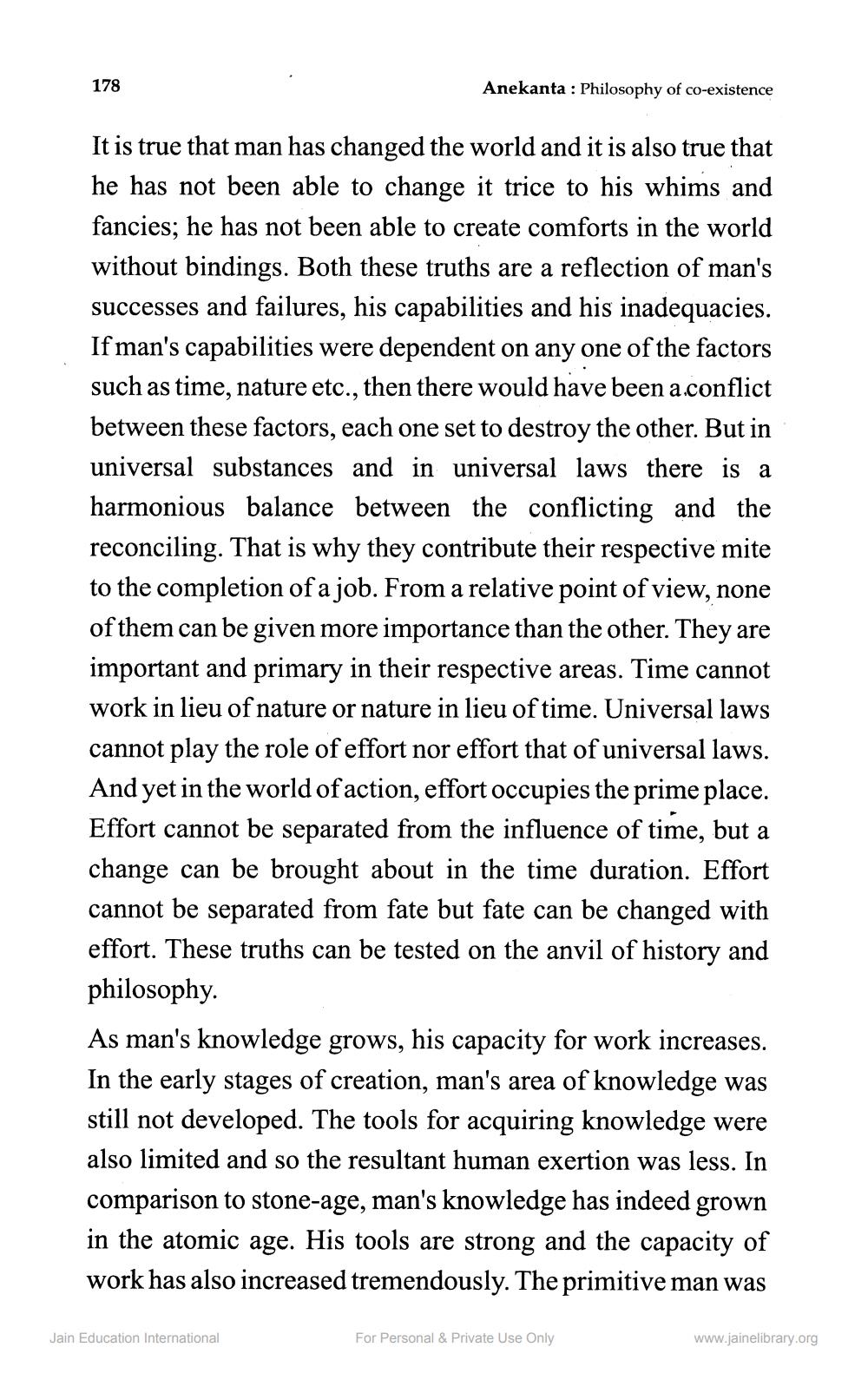________________
178
Anekanta : Philosophy of co-existence
It is true that man has changed the world and it is also true that he has not been able to change it trice to his whims and fancies; he has not been able to create comforts in the world without bindings. Both these truths are a reflection of man's successes and failures, his capabilities and his inadequacies. If man's capabilities were dependent on any one of the factors such as time, nature etc., then there would have been a.conflict between these factors, each one set to destroy the other. But in universal substances and in universal laws there is a harmonious balance between the conflicting and the reconciling. That is why they contribute their respective mite to the completion of a job. From a relative point of view, none of them can be given more importance than the other. They are important and primary in their respective areas. Time cannot work in lieu of nature or nature in lieu of time. Universal laws cannot play the role of effort nor effort that of universal laws. And yet in the world of action, effort occupies the prime place. Effort cannot be separated from the influence of time, but a change can be brought about in the time duration. Effort cannot be separated from fate but fate can be changed with effort. These truths can be tested on the anvil of history and philosophy. As man's knowledge grows, his capacity for work increases. In the early stages of creation, man's area of knowledge was still not developed. The tools for acquiring knowledge were also limited and so the resultant human exertion was less. In comparison to stone-age, man's knowledge has indeed grown in the atomic age. His tools are strong and the capacity of work has also increased tremendously. The primitive man was
Jain Education International
For Personal & Private Use Only
www.jainelibrary.org




